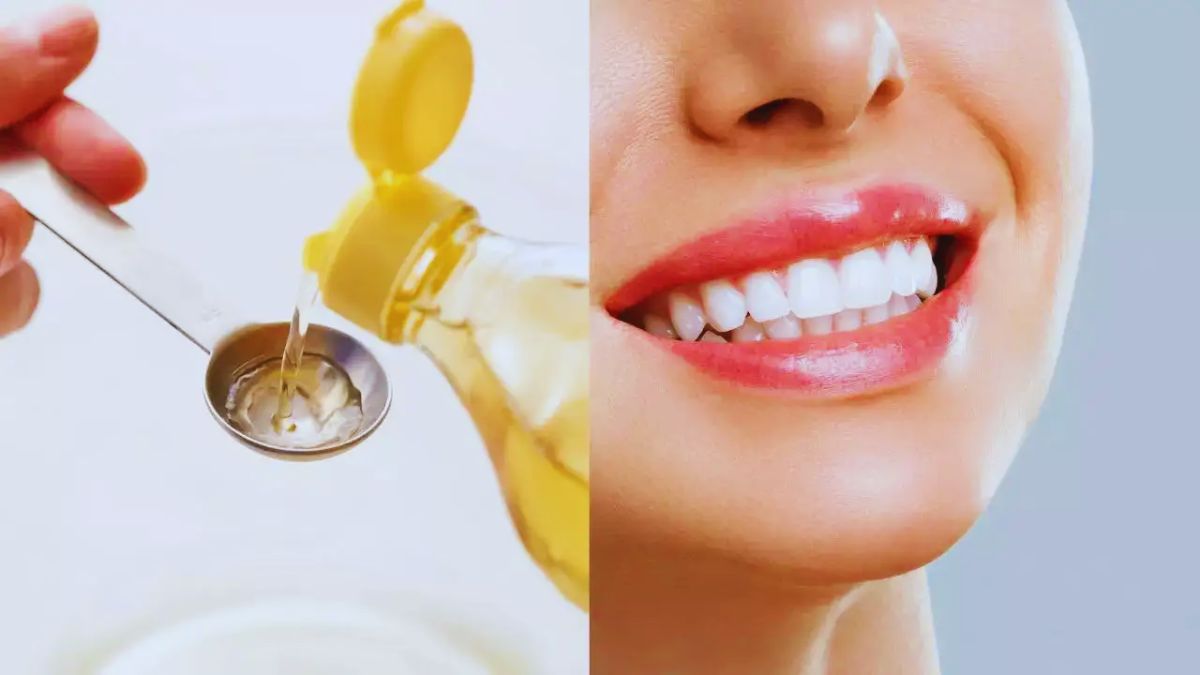An uber cool health trick that has been an Internet favourite and took it by storm ever since the term was coined is the art of ‘Oil Pulling’ – known to be beneficial for reducing the quantity of bacteria in the mouth, improving gum health, and preventing issues like bad breath and cavities. It’s a rather simple, fuss-free and easy step to add to your daily routine.
Oil Pulling is an ancient practice that involves swishing oil in your mouth to remove bacteria and promote oral hygiene. It is often associated with Ayurveda, the traditional medicine system from India.
Several studies have suggested that oil pulling can kill bacteria in the mouth and improve dental health. Some alternative medicine practitioners also claim that it can help treat several diseases.
While it’s not entirely clear how oil pulling works, it’s claimed to ‘pull’ bacteria from the mouth; also help by moisturizing gums and increasing saliva production, which can reduce the presence of bad bacteria. Some types of oil also contain properties that can naturally reduce inflammation and bacteria to promote oral health.
This article looks at some of the science-backed benefits of oil pulling and how to perform this activity in simple steps.
Top 05 Benefits of Oil Pulling
1. Reduces Harmful Bacteria –
There are approximately as many as 700 different types of bacteria that reside in a human mouth, and up to 350 of them may be found at any given time. Certain types of harmful bacteria can contribute to problems like tooth decay, bad breath, and gum disease.
Several studies have shown that oil pulling could help reduce the number of harmful bacteria in the mouth. This can help support proper oral hygiene and prevent tooth decay conditions.

2. Reduces Bad Breath –
‘Halitosis’, also known as bad breath, is a condition that affects an estimated 50% of the Indian population. There are many potential causes of bad breath.
- Some of the most common ones are infection, gum disease, poor oral hygiene, and tongue coating, which is when bacteria become trapped on the tongue.
The treatment typically includes the removal of the bacteria, either through brushing or by using an antiseptic mouthwash like chlorhexidine. Oil Pulling has also been found to be as effective in improving and reducing bad breath from the mouth. Though more research is needed, it can be considered as a natural alternative to reduce bad breath and could be effective too.
3. May Help Prevent Cavities –
Cavities are a common problem that stems from tooth decay. Poor oral hygiene, eating too much sugar, and a buildup of bacteria – all these can lead to tooth decay, which ultimately forms holes in teeth, known as cavities.
Several studies have found that oil pulling can help reduce the number of bacteria in the mouth, preventing tooth decay. Decreasing these strains of bacteria through oil pulling could help prevent tooth decay and reduce the risk of cavity formation.
4. Reduces Inflammation & Improves Gum Health –
‘Gingivitis’ is a type of gum disease marked by red and swollen gums that bleed easily. The bacteria found in plaque is a major cause of gingivitis, as they can cause bleeding and inflammation in the gums.
In order to control this, oil pulling may be an effective remedy to improve gum health and reduce inflammation. It works primarily by decreasing the harmful bacteria and plaque in the mouth that contribute to gum disease. Using certain oils with anti-inflammatory properties, oil pulling may prove to be an effective supplementary treatment to prevent plaque formation and promote healthy gums.
5. Other Benefits –
The proponents of oil pulling also claim that it may benefit a wide variety of other conditions – ones linked to inflammation and also could be a natural way to whiten your teeth.
Two major advantages with oil pulling are the simplicity of the process to do it and how easily it can be incorporated into your daily regimen – it requires just one ingredient which can be easily found right in home kitchens, making it a hassle-free technique.

How To Do Oil Pulling in Simple Steps:
Oil pulling is easy to do and involves just a few simple steps. Just follow the below given steps:
- Measure one tablespoon (approx. 15 milliliters) of oil – coconut, sesame or olive oil.
- Swish it around in your mouth for 10 – 12 minutes, being careful not to swallow any. You should start beginning with 2-3 minutes, if you are new to the process of oil pulling, and gradually increase the timing, only once comfortable.
- Spit the oil into a trash can once you’re done. Avoid spitting it into the sink or toilet, as this can cause a buildup of oil, which may lead to clogging and oil stains in the basin area.
- Rinse your mouth well using water before eating or drinking anything and have a gap of atleast 20 minutes before drinking or consuming something heavy.
- Repeat these steps a few times per week or up to three times daily.
- For best results, most recommend doing this first thing in the morning on an empty stomach.
Oil Pulling has a vast range of benefits and as explained above, it may decrease harmful bacteria in your mouth, prevent plaque formation, and improve both gum health and oral hygiene. However, this should not be used in place of traditional oral hygiene practices – such as brushing your teeth, flossing, getting routine cleanings, and consulting a dentist regarding any oral hygiene problems. As a supplementary treatment, oil pulling may be a safe and an effective natural remedy to improve your oral hygiene and overall dental health.



